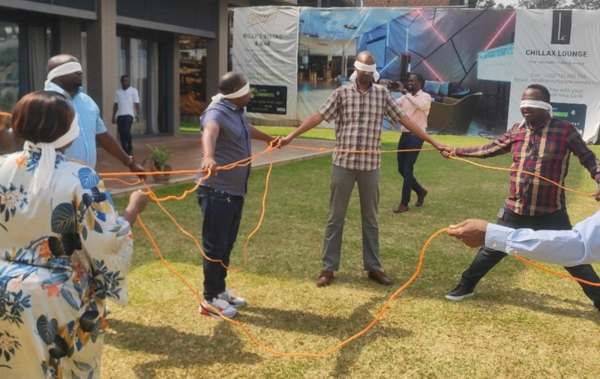Can leadership training change people?
September 3rd, 2025
I gave my first leadership training in 1992 in the Netherlands. Now, in 2025, I’m still doing it this time in Rwanda. Looking back at the hundreds of participants over the years, I ask myself: did I make any difference with these efforts?
From 1992 to 2002, I ran an open training programme in the Netherlands for managers to build analytical skills, confidence, and leadership. The core message was: lead by example. The programme lasted over a decade, so it must’ve had some value. The outcomes were… surprising. Some participants quit their jobs, some divorced, some talked differently but acted the same. Only a few used the training for how I had promoted it: as a way to become more effective leaders in their organisations.
What I learned: when people feel empowered to lead their own lives, they often choose paths that don’t match external expectations. Leadership starts with aligning your life with what really matters to you. That said, because this was an open training, many may have joined at a personal crossroads, using it to make major life changes rather than improve workplace performance.
Between 2003 and 2006, I worked in West Africa. With colleagues from SNV, we created a leadership programme for directors of NGOs, companies, local governments even mayors. The feedback was very positive. Participants valued the deep self-reflection and peer exchange, and some stayed in touch for years as a support network.
Here, I learned that top leaders often feel isolated. Peer support is rare but crucial. The programme continued in seven countries, even after I left SNV. It showed me that leadership growth isn’t just about skills it’s also about connection with peers and shared experience.
In 2022, SKOL Brewery asked me to help develop new training programmes. Together with the Training & Development team, we created the SKOL Leadership Programme. It focuses on five key aspects of leadership, delivered through a combination of group-training sessions and personal assignments.
During the sessions, you can see minds opening and people wrestling with new ideas. Integrating them in their daily work however, is not easy, and after the training, many slip back into old habits. I sometimes feel my training sessions do not have any impact.
But then, months or even a year after they did the training, I see someone operating with unexpected confidence and clarity and I suddenly realise how they have grown. Occasionally, someone tells you, “That training made a real difference for me.” Those moments are rare, but meaningful.
I’ve come to see leadership training like taking vitamins. You don’t notice an immediate change, but over time, with regular exposure and reinforcement some of it from other sources it helps people grow stronger, more resilient, and more aware.
Or, you can also say: “Leadership training is like planting seeds you don’t see the results immediately, and some of it may fall on barren ground and wither- but when the conditions are right, some of it may also grow into mighty trees.”
Jan Willem Eggink

